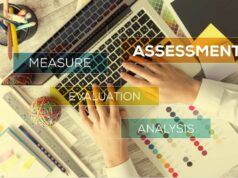The world has become even more uncertain and dynamic and faces a multitude of new challenges; challenges in dire need of solutions.
As a consequence of Covid-19, there has been a digitalization push in companies – albeit often involuntary, with even rather conservative companies turning to recognize and admit to the benefits of digital solutions and methods.
Unfortunately, this pandemic-driven push has also led to an increase in cyberattacks. Smaller companies are now increasingly exposed and easier victims of these attacks due to a lack of appropriate measures and skilled personnel for maintaining security.
At the same time, climate change and its consequences have not lost their relevance. In order to successfully address both climate and pandemic consequences, joint activities of a multitude of different actors are required on a global level. The efforts of individual countries or regions are necessary and welcome, yet not sufficient to address challenges that are dynamic and transnational.
Unfortunately, societies are not only considerably divided but are also drifting further and further apart on these issues. Examples are in the USA, the Republicans and Democrats who no longer see each other as representatives of the other political camp, but rather as enemies with whom collaboration is to be avoided under (almost) all circumstances. In Europe, Brexit can be cited as an example, and the supposedly last sad climax is the invasion of Ukraine, which not only represents a (further) caesura for democracy but has further sharpened the danger of a new cold war.
All of these examples underpin the even more urgent need for knowledge at all levels and groups in society and thereby the need for knowledge management (KM). Knowledge management has been considered a way to support the sustainability of organizations through proper and continued identification, gain, application, and dissemination of crucial knowledge.
_____
READ ALSO: What is Responsible Leadership?
_____
Over the years, knowledge has become the most important strategic factor of business operations as it is associated with firms’ capabilities to achieve and sustain a competitive advantage. This illustrates that knowledge management is traditionally discussed at the company level, where knowledge is seen as a resource (as an asset) by means of which companies can differentiate themselves from other companies and gain a competitive advantage and ideally retain it over time.
There is nothing wrong with the desire of entrepreneurs to make money and lead a good and carefree life. On the contrary, the world needs people, groups of people, who want to change the world for the better. However, it is questionable whether the logic of profit maximization and competition should still shape contemporary views in light of the challenges humanity is facing. It is a way of thinking that runs counter to the common approach to global challenges.
In light of the above, you are invited to consider an alternative approach to KM, which is called responsible knowledge management (rKM).
What is Responsible Knowledge Management?
Responsible knowledge management is seen as an approach that acknowledges that recent developments and upcoming challenges can only be addressed from a world perspective. That is responsible knowledge management goes (and has to go) beyond organizational/national/… boundaries.
rKM = Responsible Knowledge Management
Responsible knowledge management acknowledges that only a collaborative and inclusive approach involving partners of equal standing is able to tackle present and future challenges.
As responsible knowledge management is rooted in knowledge management it emphasizes knowledge creation, sharing, utilization, and retention yet not only for the individual good but for the greater good in particular. Responsible knowledge management takes sustainability seriously. That means that responsible knowledge management is primarily interested in developing a better understanding of how one (an individual/a group/an organization) can make a significant positive contribution to critical and relevant areas for society and the world.
Consequently, an organization, for example, would look first at the external environment it is operating in and then pose the question: what can we do to help address or even overcome the critical challenge at hand; challenges that demand the combined resources and competencies from a number of different actors across the world.
Responsible knowledge management seeks and appreciates the skills and competencies of everyone regardless of the person’s role, function, education, age, ethical background, etc. In addition, responsible knowledge management carefully applies the increasingly available digital tools and technologies for the greater good and is thus used with a clear purpose in mind and not simply because they are there or to make certain companies even more dominant.
Moreover, responsible knowledge management is about forming assemblies of coalitions involving a range of human beings who design and deliver together. Thus, responsible knowledge management is best facilitated by a person that takes responsibility not only for him-/herself but also for others. This person can stand different opinions, views, etc. – even search for them given the issues at stake. Everyone can be or become such a person.
_____
READ ALSO: Competitive Advantage is Dead. Long live Collaborative Advantage!
_____
A responsible knowledge management human sees the individual person not his/her rank, gender, degree, or position. He/she is inclusive rather than exclusive, is aware of the challenges ahead, and knows that only joint approaches at the world level will make it. This person reconnects with ‘we’. At the same time, a responsible knowledge management human still thinks independently (or starts doing that…), is interested, curious, gets involved, and finally, and perhaps more importantly, is aware of the strengths and weaknesses of knowledge.
The situation outlined above has certain consequences for the current understanding of knowledge management. First of all, all types of knowledge are welcome and viewed as of equal standing. Additionally, knowledge is an including /collaborative resource. To address present and upcoming challenges, there is a need for having access to knowledge/information that is not manipulated. This calls for responsible and knowledgeably mature humans using the current and past knowledge to address increasingly interlinked challenges at hand.
These responsible and knowledgeably mature humans are to ensure that critical knowledge is not only identified but also retained in order to reduce the danger of oblivion many societies were exposed to in the past. Just think of the early Middle Ages when much was forgotten/not captured from the achievements of the ancient world, as certain languages (here Greek) were spoken by only a few people. Relevant knowledge recorded in parchments or later books became victims of destruction in any form.
Today, knowledge retention is no longer a problem, keyword Big data. The problem today is rather that humanity is not only exposed to large amounts of data composed of different data sources but there is also evidence of tendencies of a reduced focus of attention. One possible consequence of this development is that challenges are tackled using information and knowledge that is quickly accessible and presented ‘nicely’.
Responsible knowledge management is a powerful resource for addressing a number of challenges that humanity is at the mercy of
Responsible knowledge management as highlighted above is an aware approach that is prepared to go beyond discussing knowledge purely from a competitive point of view. Instead, if used wisely at the world level, it is a powerful resource for addressing and overcoming a number of challenges that humanity is at the mercy of.
What does the above-mentioned mean for small and medium-sized enterprises (SMEs) in general and (r)KM in SMEs?
There is an even greater need for responsible knowledge management in SMEs; a responsible knowledge management that:
- is dynamic;
- is based on a continued exchange of internal and external knowledge sources;
- acknowledges and addresses the pros and cons of knowledge;
- combines people approaches with digital ones;
- further intensifies the cooperation with diverse
Any small firm has to identify, consider, or reconsider its role in addressing present and forthcoming challenges at the world level which will have consequences for their KM too
Let us get started. The relevant knowledge exists. Now, let us apply it as well!
_
220622









This article reveals many important insights about knowledge management. Thank you for this article!